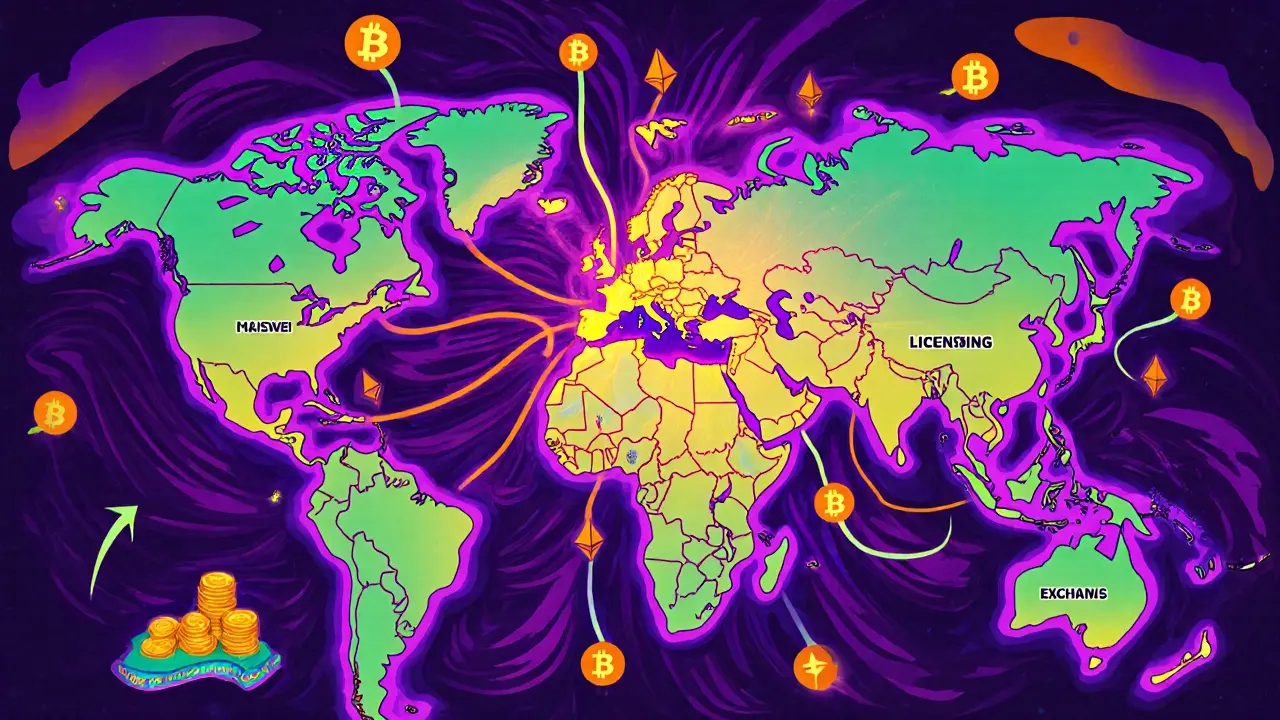Regulatory Convergence in Crypto: How Global Rules Are Shaping Your Wallet
When we talk about regulatory convergence, the growing overlap of financial rules across countries that forces crypto businesses to follow multiple, often conflicting, legal standards at once. Also known as global crypto compliance alignment, it’s no longer just about following one country’s rules—you’re now caught in a web of overlapping laws from the EU, U.S., and beyond. This isn’t theory. It’s your daily reality if you trade, hold, or build in crypto.
Take the MiCA regulation, the European Union’s landmark crypto framework that sets uniform rules for issuers, exchanges, and service providers. It doesn’t just apply in Germany or France—it affects anyone serving EU customers, even if your company is based in Singapore. Now pair that with AML requirements, the anti-money laundering rules that force crypto firms to verify users, track transactions, and report suspicious activity. The EU’s AMLR tightens this further, requiring real-time monitoring and strict KYC. Meanwhile, in the U.S., OFAC sanctions, the Treasury Department’s list of blocked wallets and entities tied to crime or terrorism means even a single transaction with a flagged address can trigger fines. These aren’t separate systems—they’re stacking up. A crypto business in 2025 must comply with MiCA, AMLR, OFAC, and local rules like Mexico’s FinTech Law or Qatar’s asset bans—all at once.
This convergence isn’t slowing down. Countries that once ignored crypto are now copying each other’s laws. Qatar bans Bitcoin but allows tokenized real estate. India doesn’t ban wallets but taxes them into oblivion. The U.S. targets scams in Myanmar while forcing exchanges to screen wallets. The result? You can’t ignore regulation anymore. Whether you’re holding EKTA, trading on DeGate, or checking if HashLand Coin is legit, you’re operating under rules that were written in Brussels, Washington, and New Delhi. The days of regulatory arbitrage are over. What’s left is a landscape where compliance isn’t optional—it’s the only way to stay in the game.
Below, you’ll find real breakdowns of how these rules play out in practice—from what’s banned in Qatar to how OFAC affects your wallet, and why MiCA is forcing exchanges to shut down or relocate. No fluff. Just what you need to know to protect your assets in this new, locked-down crypto world.
Global Crypto Regulatory Convergence Trends: How Countries Are Aligning Digital Asset Rules
Global crypto regulation is aligning around MiCA standards, with major economies adopting consistent rules for stablecoins and exchanges. This convergence is boosting institutional investment, reducing volatility, and pushing small players out of the market.
